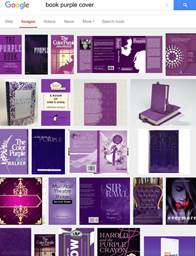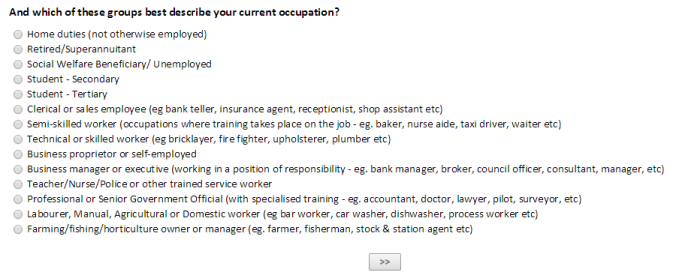Oh my. It wasn’t just a library joke. People really did say this and mean it. And then expect you to find the book for them. As in, possibly right then. At that moment. Pronto~!
Their faces fall if you can’t. It’s a little bit heart-breaking, and one is left with a keen sense of failure in having been the Depository of all Literary Knowledge, and let an enthusiastic reader down.
The first time someone said this line to me, I thought they were taking the mickey and laughed.
Oops, no: serious. Quickly back paddle.
You know, we should forget about classifying the books by the Dewey or Library of Congress systems. Because this is how patrons really want us to shelve them:

Central West Libraries, Australia: http://www.cwl.nsw.gov.au/2015/02/09/looking-for-a-red-book/

Tobin Library, USA: http://www.oif.ala.org/oif/?p=1491
I thought I would share some of the resources I use when searching for Forgotten Books.
Because without doubt, they are a thing. They are usually children’s or young adult books, as this comes about when people begin to suffer from Nostalgia Sickness.
It is usually only a quick dose of this illness, but like a nagging bacterial infection, needs a specialised antibiotic to make it go away.
And that antibiotic is a particular book. And it is up to you to make a diagnosis and find that book.
So, here are a few of the resources I use:
· Goodreads Group – What’s The Name Of That Book???
https://www.goodreads.com/group/show/185-what-s-the-name-of-that-book
· Stump the Bookseller (N.B. Small fee applies but archives free to browse)
http://www.loganberrybooks.com/stumpthebookseller/
· Search (e.g. Google) keywords (any details of plot, names, etc. also ‘book’, ‘story’, ‘young adult’, ‘historical’, ‘thriller’, etc.)
· Literature Reference Guides, e.g.
– Oxford Companion to Twentieth-Century Literature in English, edited by Jenny Stringer
– Bloomsbury Guide to Women’s Literature, edited by Claire Buck
– Cambridge Companion to Scottish Literature, edited by Gerard Curruthers, Liam McIlvanney
· AbeBooks.com BookSleuth®
http://forums.abebooks.com/discussions/AbeBookscom_BookSleuthreg/abeSleuthCom
· Also the image searching option for search engines can be helpful. For example, typing in “purple book cover” yields:
On a related matter: people, after finding out I work in a library, will either…
a) say I don’t look like a librarian
b) ask me to recommend them a book
“Uh, ok. What kind of stories or characters interest you? Fiction or non-fiction? What have you enjoyed watching or readi-“
“No, no,” my dentist says cheerfully. “just off the top of your head.”
“Gravity’s Rainbow,” I shoot back as he reaches for the drill.
These are some of the resources or strategies I use to help recommend a book (or suggest to people that they use):
· The Ultimate Teen Book Guide, by Daniel Hahn (Editor), Susan Reuben, Leonie Flynn
· The internet. Just search the internet. Blogs, forums, LibraryThing, Goodreads (especially good for reading quotes from books and getting a ‘feel’ for them)
· Suggest they read the book of the film they loved. Yes, there is often a book it was based on – and the book is seldom less amazing!
· What Should I Read Next? http://www.whatshouldireadnext.com/
Does anyone else have some ideas or resources they would like to share for making book recommendations or of use in finding Forgotten Books?










